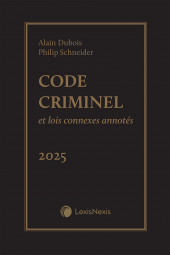Privacy Protection and Commercial Expression
One Year Subscription Only Terms
Subscribers receive the product(s) listed on the Order Form and any Updates made available during the annual subscription period. Shipping and handling fees are not included in the annual price.
Subscribers are advised of the number of Updates that were made to the particular publication the prior year. The number of Updates may vary due to developments in the law and other publishing issues, but subscribers may use this as a rough estimate of future shipments. Subscribers may call Customer Support at 800-833-9844 for additional information.
Subscribers may cancel this subscription by: calling Customer Support at 800-833-9844; emailing customer.support@lexisnexis.com; or returning the invoice marked 'CANCEL'.
If subscribers cancel within 30 days after the product is ordered or received and return the product at their expense, then they will receive a full credit of the price for the annual subscription.
If subscribers cancel between 31 and 60 days after the invoice date and return the product at their expense, then they will receive a 5/6th credit of the price for the annual subscription. No credit will be given for cancellations more than 60 days after the invoice date. To receive any credit, subscriber must return all product(s) shipped during the year at their expense within the applicable cancellation period listed above.
Détails des produits
As author Danielle Olofsson points out in the first chapter of her new publication, a "tension … exists at present between Canadian privacy legislation and a company's right to use workforce demographics to market itself – a practice that arguably constitutes a form of commercial expression." Olofsson aims to explore this tension in Privacy Protection and Commercial Expression, and examines whether "the blanket protection of personal information provided by this legislation is still relevant and effective, and what interpretive or legislative changes should be made to these acts to enable them to accommodate responses to industry challenges."
This book provides some background on the evolution and interpretation of a right to privacy and attempts to formulate arguments that could be used by a company to challenge either federal or provincial privacy legislation pursuant to section 2(b) of the Canadian Charter of Rights and Freedoms.
In-depth coverage
In Privacy Protection and Commercial Expression, Olofsson explains the evolution of Canadian privacy law, the international influences on it and how the current privacy regimes inhibit a Canadian company's ability to respond effectively to an industry challenge. In particular, she:
- Provides a succinct summary of the meaning, evolution and importance of privacy, as well as the meaning of an industry challenge and its potential impact on a company's bottom line
- Seeks to establish how the shifting boundary lines of privacy might be drawn to provide balance between a company's right to use workforce demographics to market itself and the right of the individual working for the company to keep that same information private
- Reviews the influence of the law on Canadian privacy protection by examining the ways privacy has been protected in jurisdictions that have the greatest influence on Canada, including the European Union, the United States and the United Kingdom
- Examines how a variety of legal influences from abroad are reflected in the Canadian approach to privacy – for example, certain laws explicitly protect the use, collection and communication of personal information, effectively preventing a company from responding to an industry challenge, but the courts, following the example of their United Kingdom counterparts, are more likely to address privacy on a case by case basis
- Explores the interpretive and legislative amendments that could be made to Canadian privacy legislation to enable a company to respond to industry challenges
- Discusses the possible legal action a company could take to support its position that a particular privacy law violates its right to express itself commercially under s. 2(b) of the Charter
Olofsson examines these issues in the context of privacy legislation from across the country, including An Act Respecting the Protection of Personal Information in the Private Sector from Quebec, the Personal Information Protection Act from both Alberta and British Columbia and the federal Personal Information Protection and Electronic Documents Act. Ultimately, readers gain insight into the potential impact the tension between these conflicting rights can have on a business as well as the possible legal actions available under the Charter.
A practical resource
With its focus on the tension between privacy legislation and a company's right to use workplace demographics for its own marketing purposes, Privacy Protection and Commercial Expression would be especially useful to:
- A range of legal advisors, including privacy and access lawyers, technology lawyers, employment and labour lawyers, health law lawyers, media/communications/marketing/ advertising lawyers, in-house counsel, public sector counsel and legal researchers who research and advise on privacy law issues
- Regulators, law enforcement personnel and policy makers who could use a summary of the privacy law regime in Canada to assist in shaping and enforcing the law in this area
- Business professionals, such as corporate strategists, risk and compliance managers, technology consultants, privacy advisors, corporate investigators and privacy officers who are looking for guidance on how to comply with privacy laws
- Members of academia who are seeking resources to assist with the teaching of privacy law, regulatory law and human rights law courses, as well as undergraduate courses in related subjects in law and business
Table des matières
Chapter 1: Introduction: Privacy versus commercial expression
Chapter 2: The legal influences on Canadian privacy protection
Chapter 3: The Canadian approach to privacy protection and the impediments it poses to industry challenge
Chapter 4: Purposefully interpreting Canadian privacy legislation
Chapter 5: Challenging Quebec's privacy sector privacy legislation
Chapter 6: Conclusion: Pinning down Proteus
Produits liés
-
Nouveau!
 The Practitioner’s Guide to Privacy in M&ANouveau!Date de sortie: October 25, 2024165,00 $
The Practitioner’s Guide to Privacy in M&ANouveau!Date de sortie: October 25, 2024165,00 $ -
 In the Public Eye: Privacy, Personal Information, and High Stakes Litigation in the Canadian Public SectorDate de sortie: October 27, 2022145,00 $
In the Public Eye: Privacy, Personal Information, and High Stakes Litigation in the Canadian Public SectorDate de sortie: October 27, 2022145,00 $ -
 Code criminel et lois connexes annotés, édition 2025 (Volume 1) + Guide du praticien (Volume 2) + Livre électroniqueDate de sortie: August 13, 2024175,00 $
Code criminel et lois connexes annotés, édition 2025 (Volume 1) + Guide du praticien (Volume 2) + Livre électroniqueDate de sortie: August 13, 2024175,00 $
 Lexis Nexis
Lexis Nexis 